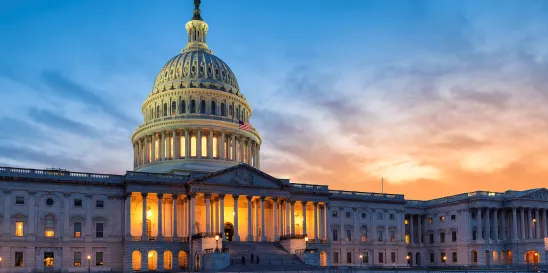U.S. Sen. Cynthia Lummis (R-WY) and Reps. Wiley Nickel (D-NC) and Mike Flood (R-NE) are working to overturn a controversial Securities and Exchange Commission (SEC) staff accounting bulletin, SAB 121, that places restrictions on the custody of digital assets by public companies, including banks and trust companies, on behalf of their customers. On Feb. 1, 2024, the lawmakers introduced a joint resolution of disapproval in both the Senate and the House, arguing the bulletin lacks legal force. If the resolution is passed by both Houses of Congress and signed by the President, SAB 121 would be nullified and would require congressional authorization to be reissued. However, even if the joint resolution passes, a veto by the President is expected.
SAB 121 states that public companies, which include banks and trust companies, holding digital assets for clients must do so on their own balance sheets, potentially requiring them to maintain considerable capital to offset the risk. This issuance sparked outrage from the digital assets industry, who generally view the bulletin as burdensome and as creating an unworkable regulatory environment for digital asset custodians, discouraging them from offering digital asset custody options.
An SAB, or “Staff Accounting Bulletin,” provides guidance to the public on how SEC staff interprets or applies certain accounting or disclosure rules but is not a rule itself and does not have the force of law. In contrast, an SEC rule is a legally binding regulation. Unlike SABs, SEC rules typically are required to be issued through a rulemaking process that includes submission to Congress and public comment.
When the SEC issued SAB 121 in March 2022, critics argued the SEC effectively enacted a new rule. An October 2023 report from the Government Accountability Office (GAO) supported this claim, stating that the SEC should have gone through the official rulemaking process before issuing the content of SAB 121. The lawmakers’ joint resolution is based in part on the GAO’s report.
Crypto lobbying groups have indicated that the nullification of SAB 121 would promote access to institutional-level custody solutions, facilitate institutional investors’ acceptance and use of digital assets, and in turn, increase the public’s access to these assets. Although the chances of nullification are low, proponents of crypto may view the joint resolution, at the very least, as useful political messaging in support of their aims.






 />i
/>i
